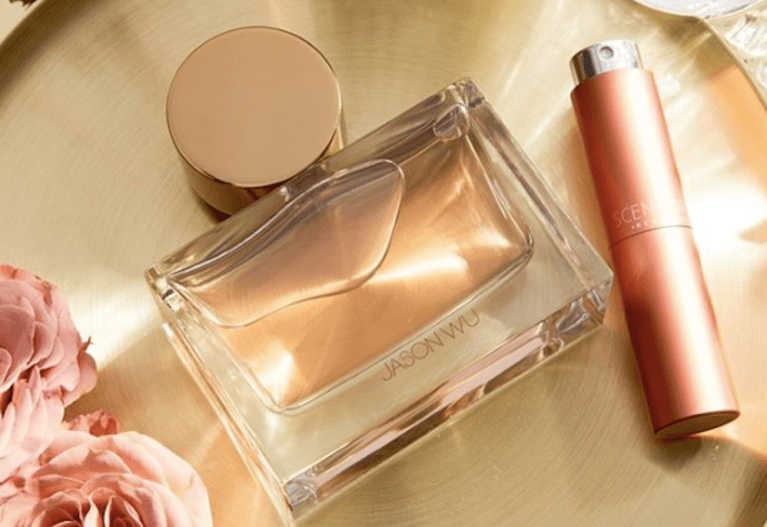Scentbird And The Sweet Smell Of Direct-To-Consumer Success

Perfume can be an expensive indulgence, particularly if one’s signature scent happens to be a designer perfume.
Paying north of $300 to $500 for a few ounces is far from unheard of — and forces a fairly large commitment onto the wearer. While there are some shoppers who can afford to collect and rotate between a few high-end scents, the average perfume customer can more likely than not only afford only a single high-end signature scent.
This is the problem Scentbird took flight to solve, so to speak. Founded in 2014, the fragrance firm offers subscribers access to around 500 designer fragrances for $14.95 per month. The customer, after filling out a short form at sign-on, is then sent their scent, in a 30-day supply.
The firm was founded by technologists Mariya Nurislamova and Sergey Gusev, along with Andrei Rebrov (a rocket scientist by training) and veteran beauty marketer Rachel ten Brink. And founding was slow-going at first: the firm bootstrapped its funding for the first 10 months before picking up its first round of investor funding, $40,000 through the Entrepreneurs Roundtable Accelerator (ERA). Over the course of the next two years, Scentbird garnered an additional $5.8 million in seed funding. As of this year — four years in — Scentbird has picked up its Series A round of funding of $18.6 million in a round led by Goodwater Capital, a next-generation consumer technology firm, and joined by Y Combinator, Rainfall Ventures, FundersClub, Soma Capital, Scrum Ventures, ERA and others.
According to Nurislamova, who went on to become the firm’s CEO, the most persistent lesson of their founding years has been in the importance of timing, which really often does turn out to be everything.
Dewy looks comin' through💧PS: Products used are available on #scentbird pic.twitter.com/GIWSySIcrl
— Scentbird (@Scentbird) September 4, 2019
“It is very important to craft the timeline carefully and stick to it,” says Nurislamova. “Pitching certain funds too early or too late in the game could backfire because they might have a preemptive deal before you get a chance to test the market or they could come in too late to be able to complete their diligence. Both could result in your round losing momentum.”
Focus, she noted in an interview, is also critical, as is a clear vision of what the brand is set forth to do. Scentbird is primarily a subscription service wrapped around a discover tool. The goal, according to Nurislamova is to help and “guide customers toward finding their new favorite scent online” without having to suffer through a full-bore assault on their sense of smell in a department store perfume section.
Instead, Scentbird uses the customer’s answers on the quiz taken at registration to calculate some options for the consumer to choose from. Users then pick what they like, add it to their queue and await delivery. Delays occur on occasion — perfume, unlike other cosmetic products, has the unique distinction of actually being classified as a hazardous material, which means the logistics of moving it are slightly more complex. The system works through the queue and sends a new fragrance depending on what is ranked next in the customer cart (consumers can move around their cart queue if they have particular perfumes they want sooner or later).
The packages as delivered come with a promised 120 sprays worth of perfume — what that average wearer goes through in a month.
Now with richer funding sources, however, the firm is eyeing expanding its repertoire beyond its original scents. Other players have entered the market since Scentbird’s 2014 launch — and established cosmetics forces like Sephora and Birchbox have started to encroach on Scentbird’s territory. Earlier this year the firm piloted an expansion into makeup of its own, but perhaps its more distinguishing recent play is a move to expand private-label offerings alongside a wide selection of designer perfumes.
That expansion began last year with the firm’s inclusion of goods like lip balms and hand creams under its own label. Now, new funding in hand, the brand is pushing what it is marketing as limited-time beauty capsule collections.
The first, Lush Gold, consists of a body wash, a body oil and a lip oil — and is designed to be a limited-time offer. The capsule is designed as affordable luxury, as it claims to be infused with 24-karat gold flakes, but is on offer for subscribers at $14.95 for the bundle, and between $23 and $30 for those who purchase it a la carte. Scentbird noted in an interview that this is the first of two or three bath and body capsules it plans to launch per year. The firm also confirmed it will be developing and rolling out a wider supply of its own merchandise as well.
“Whatever a subscription is at its start, consumers need to continuously be inspired and delighted,” said Rachel ten Brink, co-founder and CMO noted in an interview with Glossy.
The move toward private label, ten Brink noted, will strengthen margins, though the purpose of the move, she noted, is much broader. The goal is really retention, she noted, and “increasing the lifetime value of the customer journey.”